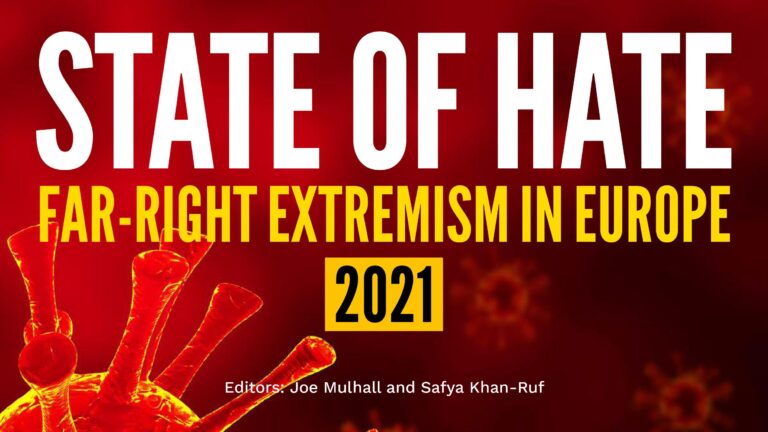Far-right groups from across Europe converged in rural France this weekend to rally in support of Marine Le Pen, underscoring the growing transnational momentum of nationalist movements on the continent. The event, organized in the heartland of Le Pen’s traditional voter base, showcased a united front among far-right leaders and activists, highlighting shared agendas centered on immigration, sovereignty, and national identity. As Europe grapples with rising political polarization, the gathering signals a coordinated effort to influence upcoming elections and reshape the continent’s political landscape.
Europe’s Far Right Consolidates Support in Rural France Behind Le Pen
In a striking demonstration of political momentum, Marine Le Pen has successfully rallied a significant segment of rural France, reinforcing her party’s foothold in areas often overlooked by mainstream politics. The event, marked by fervent speeches and visible displays of solidarity, highlighted the growing appeal of far-right ideologies beyond urban centers. Attendees underscored concerns over economic decline, immigration, and national identity, themes that have become central to Le Pen’s campaign narrative. Observers note that this consolidation reflects a strategic pivot toward communities feeling marginalized by globalization and government policies.
Key factors driving this surge include:
- Economic stagnation: Persistent unemployment and lack of investment in rural zones.
- Cultural preservation: A strong desire to protect local traditions and language against perceived external influences.
- Security concerns: Heightened fears related to crime and immigration control.
Such dynamics underscore the far right’s ability to craft a resonant message, one that challenges France’s political center and reshapes the national dialogue. The rally underscores an evolving landscape where rural voters are becoming pivotal in elections, prompting other parties to reassess their engagement strategies in these communities.
Analyzing the Socioeconomic Factors Driving Far-Right Appeal in Rural Communities
Economic stagnation and declining public services form a critical backdrop against which far-right messages resonate with rural voters. Many communities face high unemployment rates, limited access to healthcare, and underfunded education systems, creating fertile ground for political narratives that emphasize national identity and protectionism. The party’s rhetoric often highlights loss of traditional livelihoods and frames globalization as a direct threat, which, when combined with feelings of abandonment by urban-centric governments, fuels a perception of marginalization and betrayal.
Social factors compound economic grievances, with cultural anxieties playing a significant role. Concerns about immigration, perceived erosion of local customs, and a desire for stronger law enforcement are common themes echoed at these gatherings. Key drivers include:
- Demographic changes: Aging populations and youth outmigration intensify feelings of demographic threat.
- Information gaps: Limited access to diversified media sources often results in greater influence of targeted far-right propaganda.
- Community identity: Emphasis on preserving rural traditions fosters an environment where extremist narratives can gain traction.
| Factor | Impact | Illustration | |||
|---|---|---|---|---|---|
| Economic Decline | Fuel for anti-elite sentiment | Unemployment 15%+ in rural zones | |||
| Cultural Anxiety | Rise in identity politics |
| Factor |
Impact |
Illustration |
|
| Economic Decline | Fuel for anti-elite sentiment | Unemployment 15%+ in rural zones | |||
| Cultural Anxiety | Rise in identity politics | Protests against immigration policies | |||
| Demographic Shifts | Intensifies sense of demographic threat | Youth outmigration exceeding 10% annually |
If you need any more help with this content or further elaboration, feel free to ask!
Strategies for Addressing Far-Right Growth and Promoting Inclusive Political Dialogue
Addressing the surge of far-right movements across Europe demands a combination of proactive engagement and educational initiatives that reinforce democratic values. Local governments and civil society organizations can foster platforms for open and respectful dialogue by organizing community forums and workshops that encourage citizens to voice their concerns without resorting to extremist rhetoric. These initiatives must emphasize critical media literacy to help individuals discern misinformation and resist polarizing narratives fueled by populist leaders. Furthermore, inclusive political spaces can be strengthened through policies that address economic disparities and social exclusion, which are often exploited by far-right groups to gain traction.
Collaboration between political parties, educational institutions, and grassroots movements plays a pivotal role in promoting unity and tolerance. The following table highlights key strategies being implemented in various European countries to counteract far-right growth:
| Strategy | Country | Impact |
|---|---|---|
| Counter-hate Education Programs | Germany | Reduced far-right recruitment by 25% |
| Community Dialogue Initiatives | France | Improved social cohesion in rural areas |
| Social Media Monitoring | Netherlands | Dropped extremist content by 30% |
- Promote education that highlights democratic values and human rights.
- Encourage political pluralism to ensure diverse representation and reduce feelings of disenfranchisement.
- Support grassroots activism that bridges divides between urban and rural communities.
- Strengthen legal frameworks against hate speech and violence without compromising free expression.
To Conclude
As Marine Le Pen continues to consolidate support in France’s rural heartlands, the rally underscores the enduring appeal of far-right politics beyond urban centers. With the upcoming elections on the horizon, how this growing base will influence the broader national landscape remains a critical question for both supporters and opponents alike. Observers will be watching closely to see whether this momentum translates into a lasting shift in France’s political dynamics.



